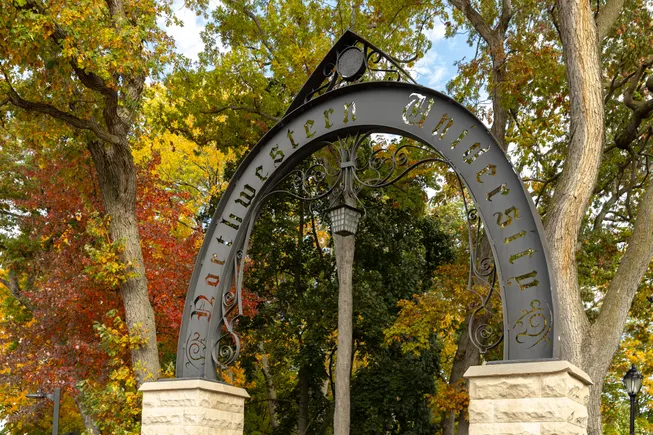Vitalii Vodolazskyi/Shutterstock
The words “Office of Financial Aid” may appear functional in a school directory; however, to many students and families, the name signals anxiety, bureaucracy, and confusion. Though direct, this nomenclature has never fully captured what the office does or what it’s meant to do. Financial aid offices are not transactional units. If anything, we are an office of transformation, from dreams of the future to diplomas in hand. We support students from their very first inquiry to long after graduation, serving as navigators, educators, advocates, and safety nets. The language we use to describe ourselves should reflect the magnitude of that role.
The Power of a Name
Far too often, the phrase “financial aid” evokes feelings of dread, not because of the people behind the desk, but because of the complexities and often intimidating systems students and families are about to enter. Even the most compassionate, student-centered team can be overshadowed by the title that feels cold, institutional, or rigid. The current label does little to honor the personalized guidance, crisis support, financial literacy, coaching, and holistic problem-solving that happen every single day within those four walls.
In today’s higher education environment, where access, affordability, and a sense of belonging are priorities at every level, it’s time to re-evaluate not just the way we serve students, but how we invite them into our offices. A name is more than just a sign on a wall. It’s the beginning of the student’s experience, and when the name implies red tape, rather than reassurance, we unintentionally create barriers at the very first point of contact.
Financial aid is not a moment; it’s a relationship. We are there when a student chooses the school, when they face unexpected hardships, when they don’t know how to repay loans, and when they think their only choice is to walk away. We show up with options and student strategy and, most importantly, with care. That is not a back-office service; that is a front-line mission. When we view the enrollment management process as a house, with admissions as the window, then financial aid is the door.
Professionals Nationwide Recognize the Need for Change
This shift in perspective is being embraced by leaders across the country. Charles Scheetz, director of financial aid at Hagerstown Community College, stated, “Over the most recent few years, most especially since COVID, prior systems have changed to ensure our office can fully service students. From working with students in high school to adults who are re-enrolling or in a change of career, we support students all the way through their academic journey and well beyond.” A similar sentiment was shared when discussing the modernization of aid offices with Stacy Toriello, director of student financial services at St. Thomas Aquinas College. She stated, “Modernizing financial aid offices isn’t just about adopting new technology — it’s about meeting students where they are. Today’s learners expect seamless, timely, and transparent support. By updating our systems and processes, we not only improve operational efficiency, but we also empower students to make informed financial decisions that directly impact their academic success.”
Patti Kohler, vice president of financial aid at Western Governors University, shares a similar sentiment; they answer questions for students about money in general, not only specific to financial aid. They have created an operational structure to ensure the student is serviced from one place, and while sometimes students are referred to other offices for assistance, the students know they can start in a single location.
Choosing a Name that Reflects This Culture Change
When we think of a financial aid rebrand, this is not a cosmetic change; it’s a cultural one. It’s an institutional commitment to honor the full scope of the student experience while elevating the essential role of the financial aid professional.
Names that are currently being utilized are Office of Student Financial Services, Offices of Affordability & Funding, or Office of Financial Solutions, with new titles such as Financial Aid Success Coach. While formally renaming helps to build trust, informal efforts matter most.
As we have most recently been enacting at the American University of Antigua College of Medicine, our efforts to increase transparency, improve communications, and expand services offered to students through the financial aid office have transformed the relationship between our office and the students. We recently received feedback from our students regarding the enhanced services, with one extending appreciation on behalf of the entire student body, stating, “We greatly appreciate the clear communication, personalized support, and financial wellness resources your office provides. It is evident how much hard work goes into maintaining this process, and we want to acknowledge the visible commitment from you and your team in helping us stay focused on our studies.”
It’s important to keep front of mind that financial aid is not just about assisting students in enrolling for the next term. It’s about equipping them for a lifetime of financial decisions, responsibilities, and success.
Final Thoughts
Ultimately, the words we use reflect the values we hold, and each one has meaning. Financial aid has never been about “forms.” It’s about a student’s future, and it’s about time the name on the door reflects the services we offer. We cannot underestimate the importance of words in higher education, especially in spaces where finances have a direct impact on a student’s future aspirations and goals. When we call ourselves the “Office of Financial Aid,” we unintentionally reinforce outdated notions that our roles begin and end with paperwork. In reality, we are the navigators of funding; we are the champions of access. We are the bridge between aspiration and achievement, the first responders when students face life-changing moments and financial emergencies. We are the architects of the future for students who choose to follow their educational dreams.
It is not just time to change the names of our office, but to redefine the narrative. When we reframe our identity to better match the reality of our impact, we not only empower students; we honor the full humanity of the work we do within our office walls. Students deserve more than a transactional label — they deserve an office that speaks to possibilities, partnership, and belonging.


























